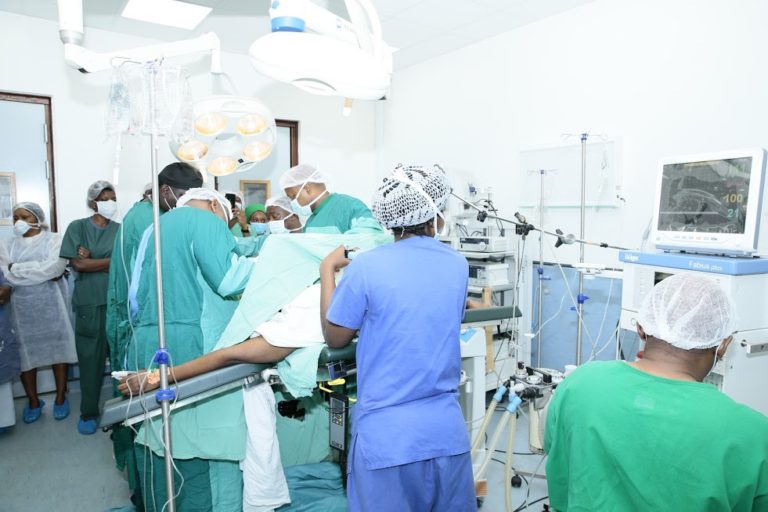The coronavirus (COVID-19) is now a reality in Cameroon as the number of confirmed cases has jumped to 56, up from the initial two on March 6, 2020. The novel coronavirus, which was detected late last year in the Chinese city of Wuhan, continues to unleash itself across the globe, already affecting over three-quarter of the world. As of March 23, 2020, over 360,000 cases had been registered worldwide, with 15,491 deaths, according to curated data.
Back in January, even before the World Health Organisation (WHO) declared the coronavirus a public health emergency of international concern, it had made known the possible danger of COVID-19 spreading to countries with weaker health systems like Cameroon. WHO called on countries to be proactive to contain the spread of the virus, as it was still at a stage where containment was possible. So, it may be safe to say the virus did not take Cameroon by surprise.
In response to the global health crisis, the government of Cameroon on March 17, 2020 adopted a 13-point measure to limit the spread of the coronavirus across the country. These include border closure, suspension of sporting events, shutdown of schools, the restriction of gathering of persons, amongst others. The government ought to have gotten a pat on the back. But considering the astronomical rise in the number of cases between the time the prevention plan was rolled out and now, it is clear the measures aren’t rigorous enough. Besides its glaring limitations, the strategy could further be undermined by a multiplicity of factors, most notably corruption.
Endemic Corruption
Transparency international says Cameroon is “greatly affected by corruption,” which is “so rampant,” citing specifically bribery and extortion. Cameroon has topped TI’s Corruption Perception Index twice as the most corrupt country in the world. And the country has continued to rank low. There is no doubt the coronavirus will meet the all-pervasive corruption in the country.
Experience has shown that crises, which often involve response money, breed corruption, particularly when officials are self-seeking opportunists. This could potentially increase the pace and danger of contagion as people subject to quarantine may likely bribe to circumvent it. There are recent reports that people from high-risk countries have been bribing their way into the country.
Also, health officials have been noted in the past for tampering with public health funds as was the case with Ebola money. As expected, companies have started pumping in millions of francs to support the government in its COVID-19 response. The government itself, international organizations and donors are set to put in money in a bid to wipe out the coronavirus. It will not be unusual if the response efforts are hindered by officials ‘pinching’ coronavirus money. Funds could also be embezzled through the organization of useless seminars and workshops, overbilled supplies, non-essential operations and payment to ghost personnel.
In addition, the country’s fragile healthcare system with limited infrastructure, protective gears, medicine, and trained staff may be overburdened should the number of positive cases skyrocket. This could create a situation whereby bribery will prevail as healthcare providers will face a situation of choosing who to treat first.
Lack of Public Trust
The success of the government’s response to the coronavirus largely depends on the collaboration of the population. Dr. Manaouda Malachie, Minister of Public Health, has on countless occasions called for more responsibility and vigilance of the population in the fight against the virus. But many still exhibit carefree attitudes. They booze in bars after the 6 PM restriction, do not observe social distancing, still gather in large numbers and are reticent to talk to health officials.
This is what happens when people do not trust the public officials calling on them to make sacrifices. How will they even trust them when a top member of government like Cavayé Yéguié Djibril (Speaker of National Assembly) does not give a damn to official advice to self-isolate upon returning from a high-risk country? When public officials gather in hundreds, yet ask others not to take part in gatherings of up to 50 persons?
As Cameroon battles to contain the spread of COVID-19, should citizens continue to mistrust public officials, there are going to be horrendous consequences. Many people won’t be willing to give up certain rights and privileges for the common good. In such a scenario, even the best COVID-19 response crafted by the world’s finest experts will crash.
Inadequate Basic Amenities/Poverty
As recommended by WHO, the government of Cameroon has re-echoed the frequent washing of hands with soap and running water as a measure to prevent the spread of COVID-19. This seems feasible in urban settings. But what about the over 50% of Cameroonians without access to potable water? In major cities across the country, water shortage is recurrent. Generally, a lack of water is the norm in rural and semi-urban settings. So, washing hands often is likely not going to be adopted as a new behavior when the priority is simply having water to drink or cook.
An oil exporter with a bloated bureaucracy, Cameroon’s poverty reduction rate is lagging behind its population growth rate, according to the World Bank. About 8.1 million people, mostly in rural and semi-urban areas live in poverty. This makes the implementation of some of the preventive measures extremely challenging as some people live hand-to-mouth. They can’t afford to stay at home no matter showing signs of high fever, cough and so on. Their main goal is simply survival.
As WHO pointed out, “poor sanitation facilities, the proliferation of informal economy and urban crowding pose additional challenges in the efforts to combat the highly infectious disease.” In Cameroon, these could be compounded by administrative negligence, poor communication strategy, misinformation and disinformation.
All hopes aren’t lost yet. The government can quickly revise its strategies and make hay while the sun shines.
















